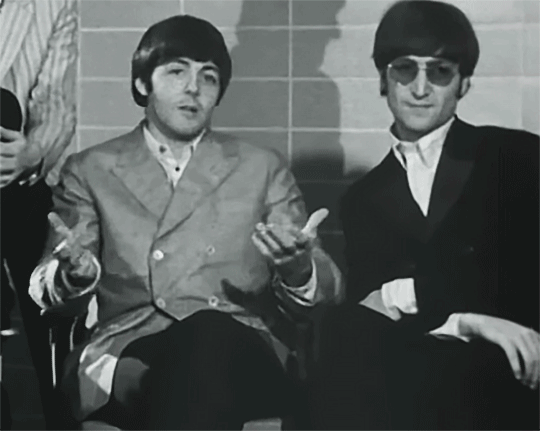2025 Yearly Roundup
At the end of every year I like to look back on some of my favourite things I did, the things I spent the year obsessed with, the music I listened to, and whatever else I consider worthy of documentation. I used to do this in my private diary but i recent years I've gotten kind of bored of it, so this year it shall be a blog post.
The emo zine
In January I made a zine retrospective on early 2010s emo culture, which was mostly a fun nostalgia project. I'm pretty sure this was triggered by the new Linkin Park album which catapulted me right back to listening to Hybrid Theory on the bus to school.

The tragic end of my unemployment
In February, I started a new job. This sadly marks the end of my unemployability. Luckily this new job doesn't make want to kill myself! Which is a huge deal for me. I wonder if I should change my blog title because I'm not technically unemployable anymore. But handling employment will always be hard for me and the refusal of wage labour remains an important part of my identity.
Morrowind
In March, I started playing Morrowind in an attempt to escape the chronic anxiety that starting a new job had caused me. After some difficulties getting into the RPG game mechanics, I completely fell in love with it. And after clocking 100+ hours in the game, which for me is a lot, I'm convinced that this is the best game ever made. It's over 20 years old, takes up merely 1GB of space, the combat mechanics are a clunky nightmare and the graphics are extremely 2002, and yet none of these things subtract from the quality of the game, in fact for me they all add to it. It was made when games still dared to ask things of the player - Morrowind demands your attention, it asks you to read and think, it doesn't hold your hand. It does so much with so little. I've been playing this game for over 100 hours and I still feel as if I haven't even discovered half of what its rich world has to offer. I love that the combat is so clunky because it makes me laugh, but also because the game isn't built around combat, but rather around exploration and immersion. And as a staunch enemy of realism, the 2002 graphics actually add to the world's strange alien landscapes. The world design is by far my favourite aspect of this game. I could spend hours just walking around marvelling at the eerie beauty of the landscape.
I guess this is the year I officially became a communist
In April I started learning more about Marxist economics, which is an ongoing project that will almost certainly never end, but it brings me great joy. It's also intensely humbling. The more I learn the more stupid I feel. But the greatest effect of learning more about dialectical materialism, the history of the working class and the communist movement, is the renewed sense of hope it gave me. Once I consciously became a communist, I felt myself becoming less of a doomer. Which is not to say that I don't think the future won't be quite dark, but that I now find myself believing in a world beyond capitalism. A sincere belief that isn't just intellectual, but a real felt sense of faith in what is possible. In this context, I've also thought a lot about my relationship to activism and political organising again - a relationship that has always been frought and that I still haven't been able to figure out. Some people would say I'm not really a communist because I'm not organised. My thoughts on this are complicated and incomplete. I haven't been able to figure it out.
My time in the McLennon mines

Oh boy. In July, I unexpectedly relapsed into one of the greatest obsessions of my life. My third Beatles psychosis since 2017. It was a hot summer's day, I'd had a glass of wine, and I randomly came across a tumblr post about the great love story of Lennon-McCartney, and I could literally feel the insanity returning into my body. The heat and the alcohol must have done something to me, I don't know, but before I knew it I had read Ian Leslie's new book and made a Beatles side blog. Then I spent several weeks in some of the most intense obsessive spirals I've ever experienced. That's the thing about my Beatles psychosis: everything else pales in comparison. The only other time I've experienced insanity of this magnitude was during MCR's 2022 return tour.
In an attempt to exorcise my demons I spent several weeks making a 40 slide long Powerpoint presentation about the great love affair of Lennon-McCartney, which I have since presented to several of my friends. I actually thought about uploading the presentation here, but the odp file is literally too big to be uploaded to neocities lmao.
I've also had several attempts at writing anything about this topic, but I'm realising that it's just incredibly difficult to write about. It has so many layers, so many complexities and ethical quandaries, that I feel like I can't write anything short of a book about it. If someone could give me some money I could live on for a year, I could write that book. I hope that someone someday writes it, because this story is so important to me, and I want it told! I want it done justice! There was a queer relationship at the heart of arguably the most impactful cultural phenomenon of the 20th century and I WANT PEOPLE TO KNOW ABOUT IT! This is untold queer history of the highest magnitude. And I remain deep in its trenches.
My beautiful local forest

In October, I started exploring my local forest more. There is some beautiful swampland in the local woods, as well as several lakes, and a tiny cemetery in the middle of the woods that makes you feel like you just stepped into a fairy tale. In summer I often swim in the lake, which is one of my favourite things to do. I like to swim out to the deepest parts of the lake and just drift around there. Paradoxically, it makes me feel safe. There is something very calming about being carried by deep water.
The Mars Trilogy
In November, I finished reading the Mars trilogy by Kim Stanley Robinson. I started reading it because one of my favourite video essayists, Sophie from Mars, made this brilliant video on it. I love Sophie's work because she brings such a strong compassionate voice from a revolutionary working class perspective into the often middle class space of leftist video essays.
The Mars trilogy was such a breath of fresh air in what I'd been reading this year. It feels so alive and expansive, and it manages to weave together big ideas about politics, economics and the organisation of society with the personal everyday reality of a really compelling cast of characters. It took me almost 5 months to read the whole trilogy, but in a way I love spending this much time inside a single story. It allows for deep immersion of familiarity.
Albums I listened to a lot this year
- The Machine Starts to Sing by Porridge Radio
- Fevereaten by Witch Fever
- McCartney II by Paul McCartney
The last one being a casualty of my Beatles psychosis. Like many post-Beatles solo records, I first listened to this album because its of its connection to the Lennon-McCartney relationship. The title track of this album, Coming Up, famously inspired John Lennon to return to making music after his 5 year hiatus during the later half of the seventies. Reportedly, when John first heard Coming Up on the radio, he exclaimed "fuck a pig, it's Paul!". He would go on to write the material for his last album before his death, among which was the song (Just like) Starting Over, likely containing several messages to Paul in 1980.
I had this exact journey with this album as I had with 1971's RAM 8 years earlier, which is to say that I first listened to it because of a specific song, and then discovered to my great joy that the entire album slaps severely. McCartney II is musically worlds apart from RAM, it is a pretty unhinged synth pop album with a slightly frenzied feel. It sounds like someone acquired a bunch of weird machines, locked themselves in a shed and had a manic episode. I love it. It's incredibly playful, and that quality is very infectious, because I ended up listening to it on repeat while frantically cutting up magazines and making collages out of them. That slightly mad playfulness that doesn't take itself too seriously is my favourite thing about this album.